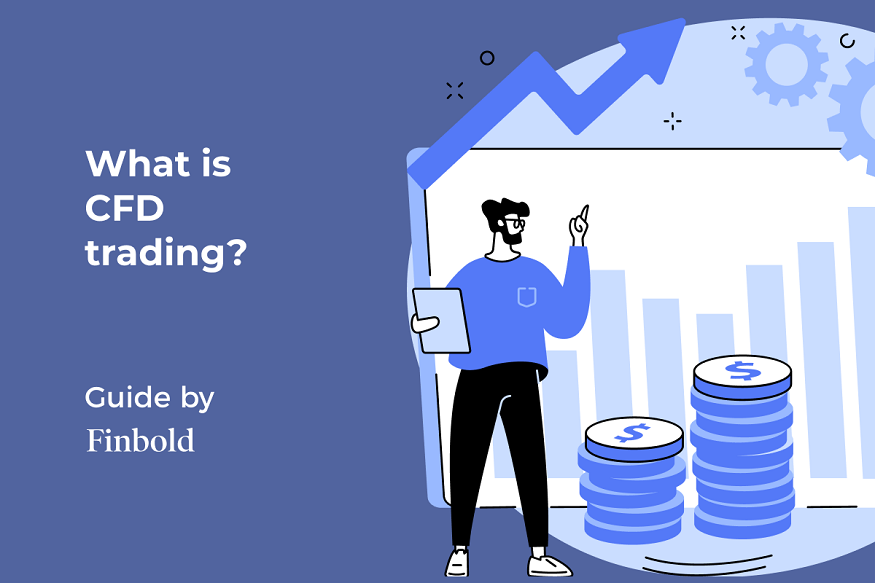Amplify your trading potential with CFDs: a comprehensive guide to Contract for Difference investments
Today, CFDs (Contracts for Difference) are becoming increasingly popular among investors who want to amplify their trading potential. A CFD is a contract where two parties agree to exchange the difference in the value of a stock or asset from the contract’s start to its end. It can trade stocks, indices, commodities, and currency pairs.

Advantages of CFDs
CFDs offer several advantages compared to traditional investments such as stocks and bonds. First and foremost, they allow traders to access markets without owning the underlying asset, which means that traders can benefit from price movements without purchasing or selling any physical assets.
CFDs provide greater leverage than other investment vehicles, allowing traders to open more prominent positions with less money than possible. Traders may also benefit from short selling when market prices fall by taking a position that profits from short-term downward movements instead of buying and holding long-term investments hoping for an eventual upturn in market prices.
Due to their flexibility and potential for high financial returns, CFDs have become attractive instruments for many experienced investors looking to amplify their trading potential. To maximise your chances of financial success, it is essential that you understand how these derivatives work and the range of risks associated with them before investing any capital into them.
What to consider when entering CFD transactions?
When entering a CFD transaction, you must understand what type of asset you are trading, whether a stock index or commodity, and familiarise yourself with how each works to make informed decisions on your trades. You should know the fees brokers charge on your trades, including commission fees based on the size of your position or spreads based on the liquidity provider’s bid/ask spread for each asset class traded through them.
You should also consider implementing risk management strategies such as stop-losses or limit orders when entering trades to protect against significant losses if market conditions change unexpectedly against your position. However, this should always be done within an overall risk management strategy explicitly tailored towards your individual trading goals and objectives.
You must have sufficient capital available to meet margin requirements set by brokers if you plan on using leverage when trading CFDs, as this will enable you to access larger markets than otherwise possible while limiting your downside risk depending on your risk appetite level, which should be discussed with an independent financial adviser before entering into transactions with leveraged products such as CFDs due its complex nature and inherent risks involved in this type of investment activity.
How to start trading CFDs in Singapore
Regarding trading Contracts for Difference (CFDs) in Singapore, investors should first familiarise themselves with the regulation and framework of CFD trading in the country. The Monetary Authority of Singapore (MAS) monitors CFD products and has established a Code of Conduct for entities offering derivatives products such as CFDs. All brokers offering CFDs must be licensed by MAS or approved by an authorised financial institution such as a bank, approved exchange or recognised marketplace.
Investors should understand the critical risks associated with CFD trading before committing any funds, including margin requirements, leverage limits, order types and fees charged by the broker. It is also crucial that all transactions are conducted on platforms regulated by MAS and have been audited for compliance with applicable regulations.
Before commencing a trade, investors should also consider their overall risk appetite when managing their positions. They must create a well-thought-out risk management plan for their needs and objectives.
Investors should look for reputable brokers who offer competitive spreads and commission fees while providing excellent customer support services such as research materials and educational resources, including tutorials and live webinars about CFD trading topics. By taking these steps before trading CFDs in Singapore, investors can optimise their potential returns while minimising potential losses from unexpected market events.
Practice your trading skills on a CFD demo account
Before trading with real money, getting comfortable with the platform and practising your trades on a demo account is essential, which allows you to test out different strategies and understand how the markets in Singapore work without risking any of your capital. For example, Saxo CFD broker provides their traders with demo accounts for them to get familiar with their platforms before committing real funds to live trades.
Experienced traders may want to utilise more advanced features, such as automated or algorithmic trading systems, to implement predetermined rules or strategies to execute trades when specific market conditions are met. From fundamental analysis, stop-loss orders, limit orders and take profit targets; to more complex charting analysis tools like candlestick patterns, Fibonacci retracement lines and stochastic oscillators, these features can help you identify entry and exit points for your trades.
The final word
CFDs can provide experienced investors looking for ways to amplify their potential trading access to different markets at lower cost while providing greater flexibility than traditional forms of investments; however, before investing in these instruments, they must understand all aspects involved in CFD trades including its potential drawbacks and risks so they can make informed decisions when executing trades within their overall risk management strategy tailor-made towards meeting their individual investment goals and objectives.
“It is important that you understand that with investments, your capital is at risk. Past performance is not a guide to future performance. It is your responsibility to ensure that you make an informed decision about whether or not to invest with us. If you are still unsure if investing is right for you, please seek independent advice. Saxo Markets assumes no liability for any loss sustained from trading in accordance with a recommendation.”
